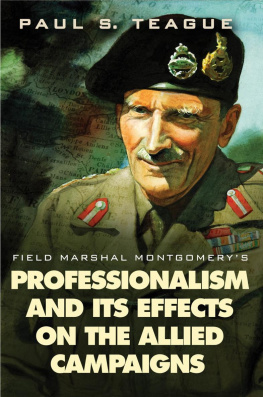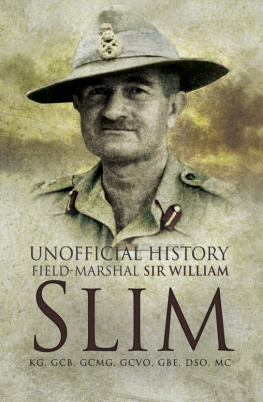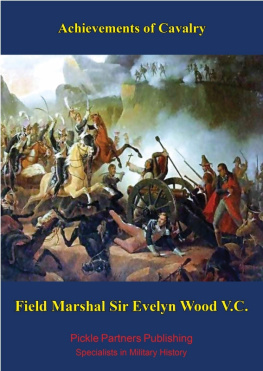This edition is published by PICKLE PARTNERS PUBLISHINGwww.picklepartnerspublishing.com
To join our mailing list for new titles or for issues with our books
Or on Facebook
Text originally published in 1897 under the same title.
Pickle Partners Publishing 2013, all rights reserved. No part of this publication may be reproduced, stored in a retrieval system or transmitted by any means, electrical, mechanical or otherwise without the written permission of the copyright holder.
Publishers Note
Although in most cases we have retained the Authors original spelling and grammar to authentically reproduce the work of the Author and the original intent of such material, some additional notes and clarifications have been added for the modern readers benefit.
We have also made every effort to include all maps and illustrations of the original edition the limitations of formatting do not allow of including larger maps, we will upload as many of these maps as possible.
NAPOLEON
AS A GENERAL
BY THE LATE
COUNT YORCK VON WARTENBURG
COLONEL OF THE GENERAL STAFF OF THE PRUSSIAN ARMY
FORMING THE SEVENTH BOOK
OF
the Wolseley Series
EDITED BY
MAJOR WALTER H. JAMES
VOL II
AUTHOR'S PREFACE
The favourable reception given to my bold attempt to criticize Napoleon's strategical conceptions has served as a stimulus to me to complete the second part, which was indeed already far advanced despite of many difficulties which had to be encountered. I hope the reading public may give the same reception to this, the concluding portion. For the early appearance of the volume my thanks are due to Lieutenant v. Kameke, of the Emperor Alexander's Grenadier Guard Regiment, who has taken the trouble to draw the map of the Russian theatre of war.
I must repeat with regard to this part what I said with regard to the first. I have in no way tried to write an exact and complete history of the Napoleonic campaigns, but have confined myself to a consideration of the points which were necessary to form a proper judgment on the French General
In the first volume I endeavoured to follow the course of the rising star of the General and to admire its constantly increasing brilliance the second I try to describe its path and the inherent weaknesses which led to its decline from the zenith.
If in the first portion I seem to have yielded too much to the aspirations of the poet who said, I love the man who strives beyond his might, I trust in the second I have not been oblivious of the warnings of the same writer:
The man you choose is various and great,
His deeds will serve you long for much reflection
Yet strive to learn from his unforward fate
He is not fined as a model for selection.
NAPOLEON AS A GENERAL.
CHAPTER I. SPAIN.
T ILSIT had revealed to the amazed eyes of the world a height of power such as history had never seen united in the hands of any individual man since the times of Attila. All the states on the Continent were frightened and weakened, or had become humble vassals of the colossus; and he, with his hand on the map of Europe, exclaimed: All this is mine, or will soon be mine; I can dispose of it already. {1} Russia alone seemed still to have some independence and self-assertion, but even she had been shaken by the powerful general, misled by the cunning politician, and he had only to display proper statecraft to make it his fully and permanently.
But the Emperor's thoughts were bent in another direction. It is the statesman's part to be patient, to wait for the right moment, to mature his plans and to delay action until such a moment. It is the general's never to postpone, but to take time by the forelock, because the way for him to attain his end lies in superior strength. For both statesman and general, however, it is of importance to seize the right moment; yet whilst the former employs for this mainly patience and calm calculation, the latter will succeed rather by passion and boldness. Of course the statesman cannot altogether dispense with passion nor the general with calculation; but in their actions these two feelings respectively will play a different part. The statesman will be more prone to fail through too much impatient boldness, and the, general through too much cautious calculation.
Indeed at this very time the Emperor was to furnish a great example of how little his soul, striving impatiently for the empire of the world, could bear to wait for the right moment and how little he himself justified his own dictum: To choose the right time is the great art of man; what is to be done in 1810 cannot be effected in 1807. Gallic nerves are not capable of submitting to this cool waiting for the right time, and yet by this capacity alone have I been so successful in all that I have done. {2} He could not look upon the conquests he had made hitherto as assured, and yet he was about to attempt new ones. With infinite cunning he laid the train for the seizure of Spain. The treaty of Fontainebleau facilitated the entry of his troops; he occupied the country and the capital. Then Bayonne gave up to him the royal family, the latter resigned their rights, and in their place he established Joseph on the throne of Spain.
But these treaties were not confirmed by the Spanish nation; {3} it did not acknowledge the resignation of Charles and Ferdinand, but rose up unanimously against the foreign rule. Thus the Emperor was confronted by a new military task: the quelling of a general national rising in a large country, and indeed in one which, intersected as it is by irregular mountain chains, and provided with but an imperfectly developed system of roads, lent itself more readily to a successful guerilla war than any other in Europe. This was more especially the case as it was inhabited by a people simple in their bodily wants, but violent and easily excited, and moreover endowed with the strength afforded by separate provincial life, together with a full preservation of the feeling of unity. We will now enter upon a consideration of the manner in which the Emperor solved this problem.
His forces in the Peninsula towards the end of May, 1808, were distributed in the following way: Murat was at Madrid, invested with the chief command as the Emperor's representative; he had in and about the capital 30,000 men under Moncey; Junot with 25,000 men stood in Portugal; Bessires had 25,000 men, viz. 13,000 in Old Castile and 12,000 under Verdier in Aragon. In Catalonia there were 13,000 men under Duhesme, and finally Dupont was with 24,000 men on the Tagus in the neighbourhood of Toledo. At first the Emperor remained at Bayonne, watching thence the course of affairs on the Spanish theatre of war. He did not consider the situation in any way serious at the time, and thought he would quickly crush the rebellion, by despatching flying columns in different directions. He therefore advised his generals to resort to summary proceedings. In this kind of war, retrograde movements are never any good. Such movements are dangerous in regular warfare; in a national rising they should never be employed. {4} Consequently he sent Moncey with 10,000 men to Valencia, Dupont with 9000 to Andalusia, and Bessires' troops to the various central towns of Old Castile and as far as Santander.








